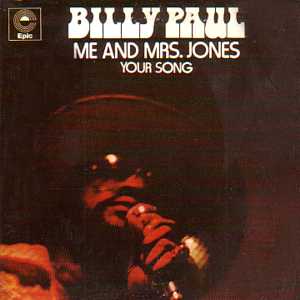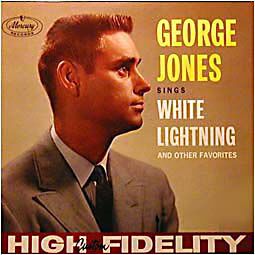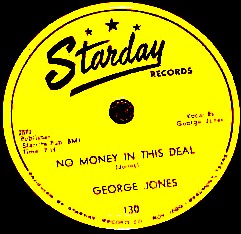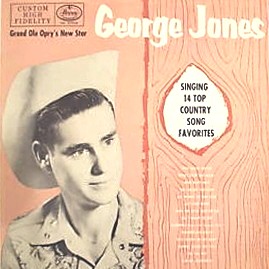
The Bee Gees were a musical group formed in 1958 by brothers Barry, Robin, and Maurice Gibb. The trio were especially successful in popular music in the late 1960s and early 1970s, and later as prominent performers in the disco music era in the mid- to late 1970s. The group sang recognisable three-part tight harmonies: Robin's clear vibrato lead vocals were a hallmark of their earlier hits, while Barry's R&B falsetto became their signature sound during the mid- to late 1970s and 1980s. The group wrote all their own original material, as well as writing and producing several major hits for other artists, and are regarded as one of the most important and influential acts in pop-music history. They have been referred to in the media as The Disco Kings, Britain's First Family of Harmony, and The Kings of Dance Music.

Brenda Mae Tarpley, known professionally as Brenda Lee, is an American singer. Performing rockabilly, pop and country music, she had 47 US chart hits during the 1960s and is ranked fourth in that decade, surpassed only by Elvis Presley, the Beatles and Ray Charles. She is known for her 1960 hit "I'm Sorry" and 1958's "Rockin' Around the Christmas Tree", which has become a Christmas standard.

Shirley Mae Jones is an American actress and singer. In her six decades in show business, she has starred as wholesome characters in a number of musical films, such as Oklahoma! (1955), Carousel (1956), and The Music Man (1962). She won the Academy Award for Best Supporting Actress for playing a vengeful prostitute in Elmer Gantry (1960). She played the lead role of Shirley Partridge, the widowed mother of five children, in the musical situation-comedy television series The Partridge Family (1970–1974), which co-starred her real-life stepson, David Cassidy, son of Jack Cassidy.

George Glenn Jones was an American country musician, singer, and songwriter. He achieved international fame for his long list of hit records, including his best-known song "He Stopped Loving Her Today", as well as his distinctive voice and phrasing. For the last two decades of his life, Jones was frequently referred to as the greatest living country singer. Country music scholar Bill Malone writes, "For the two or three minutes consumed by a song, Jones immerses himself so completely in its lyrics, and in the mood it conveys, that the listener can scarcely avoid becoming similarly involved." The shape of his nose and facial features earned Jones the nickname "The Possum". Jones has been called "The Rolls-Royce of Country Music" and had more than 160 chart singles to his name from 1955 until his death in 2013.

Joseph Rudolph "Philly Joe" Jones was an American jazz drummer.

John Royce Mathis is an American singer of popular music. Starting his career with singles of standard music, he became highly popular as an album artist, with several dozen of his albums achieving gold or platinum status and 73 making the Billboard charts. Mathis has received the Grammy Lifetime Achievement Award and has been inducted into the Grammy Hall of Fame for three recordings.

Francis Dominic Nicholas Michael Rossi, is an English singer, musician and songwriter. He is the co-founder, lead singer, lead guitarist and the sole continuous member of the rock band Status Quo.
"The Skye Boat Song" is a late 19th-century Scottish song adaptation of a Gaelic song composed c.1782 by William Ross, entitled Cuachag nan Craobh. In the original song, the composer laments to a cuckoo that his unrequited love, Lady Marion Ross, is rejecting him. The 19th century English lyrics instead evoked the journey of Prince Charles Edward Stuart from Benbecula to the Isle of Skye as he evaded capture by Whig political party redcoats after his defeat at the Battle of Culloden in 1746.

Shannon Wheeler is an American cartoonist, best known as a cartoonist for The New Yorker and for creating the satirical superhero Too Much Coffee Man.

"You're All I Need to Get By" is a song recorded by the American R&B/soul duo Marvin Gaye and Tammi Terrell and released on Motown Records' Tamla label in 1968. It was the basis for the 1995 single "I'll Be There for You/You're All I Need to Get By" from Method Man and Mary J. Blige.

A fireman, stoker or watertender is a person whose occupation it is to tend the fire for the running of a boiler, heating a building, or powering a steam engine. Much of the job is hard physical labor, such as shoveling fuel, typically coal, into the boiler's firebox. On steam locomotives the title fireman is usually used, while on steamships and stationary steam engines, such as those driving saw mills, the title is usually stoker. The German word Heizer is equivalent and in Dutch the word stoker is mostly used too. The United States Navy referred to them as watertenders.

"Me and Mrs. Jones" is a 1972 soul song written by Kenny Gamble, Leon Huff, and Cary Gilbert, and originally recorded by Billy Paul. It describes an extramarital affair between a man and his lover, Mrs. Jones. In the song, the two meet in secret "every day at the same cafe", at 6:30, where they hold hands and talk. The two are caught in a quandary: "We got a thing going on/we both know that it's wrong/but it's much too strong/to let it go now."

"Don't Go Near the Water" is a song by American rock band the Beach Boys from their 1971 album Surf's Up. Written by Mike Love and Al Jardine, the song puts an ironic, ecological spin on the traditional Beach Boys beach- and surf- based songs: instead of enjoying surfing and other fun activities, this time the listener is advised to avoid the water for environmental reasons.
Edward C. "Ed" Cobb was an American musician, songwriter, and record producer, most notably during the 1950s and 1960s. He is best known for writing the song "Tainted Love" for Gloria Jones, which later became a hit worldwide when it was covered by Soft Cell.

Carousel is a 1956 American drama fantasy musical film based on the 1945 Rodgers and Hammerstein stage musical of the same name, which in turn was based on Ferenc Molnár's 1909 non-musical play Liliom. The film stars Gordon MacRae and Shirley Jones, and was directed by Henry King. Like the original stage production, the film contains what many critics consider some of Rodgers and Hammerstein's most beautiful songs, as well as what may be, along with the plots of Allegro, South Pacific, and The King and I, the most serious storyline found in their musicals.

White Lightning and Other Favorites is a studio album released by George Jones on May 26, 1959. Its title track "White Lightning" was a #1 Country hit in 1959.
I Get Lonely in a Hurry is an album by George Jones, released on United Artists Records in 1964.

"No Money in This Deal" is the debut single by country musician George Jones, released on February 18, 1954 on Starday Records.

George Jones Sings is a compilation album released by George Jones in May 1957. The album didn't chart well; however, it plays many of his best early recordings.
"Playing for Keeps" is a song originally recorded by Elvis Presley. Its first release on record was on January 4, 1957, on a single with "Too Much" on the other side. "Playing for Keeps" reached number 34 in the United States, while "Too Much" spent 3 weeks at number 1.















